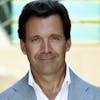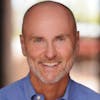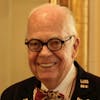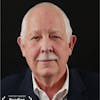How To Level Up As A Leader - David Arraya

In this episode, we're joined by David Arraya, an international hotelier, globe trotter, coach, and speaker. Listen now to learn about:
- Navigating Career Ambitions: The delicate balance between ambition and patience, and how to manage the consequences of career decisions.
- Building and Maintaining Relationships: Gain insights into the importance of keeping in touch with colleagues and handling professional transitions with grace.
- Overcoming Distractions: Discover strategies to combat the addictive nature of technology and maintain focus in a world full of digital distractions.
- Generational Differences: Explore the impact of generational shifts on the workplace, from Baby Boomers to Gen Alpha, and how these changes affect teamwork and leadership.
- Conscious Leadership: Learn about the concept of conscious leadership and hospitality and how being present and aware can transform your personal and professional life.
- Daily Rituals for Success: Uncover the power of daily rituals and intentionality to stay grounded and focused amidst life's chaos.
- The Future of Teamwork: Get a sneak peek into David's upcoming book, "The Future of Teamwork," and understand the evolving dynamics of attachment, collaboration, and co-creation in modern organizations.
Tune in for a transformative conversation that will inspire you to lead with intention, embrace presence, and foster a more human-centered approach in your career and life.
- Follow David on LinkedIn
- Listen to David's podcast, The Conscious Hospitality Podcast on Apple Podcasts or Spotify
If you care about hospitality, check out the Masters of Moments podcast where Jake Wurzak interviews top leaders in hospitality. His conversations with Bashar Wali and Matt Marquis are a great place to start, but also check out his solo episodes such as how he underwrites investment deals and a deep dive into GP fees you know about.
Music by Clay Bassford of Bespoke Sound: Music Identity Design for Hospitality Brands
David: As a child, I was always the child that they would say, slow down, David, slow down. My parents, my teachers, my coaches, everybody I knew, slow down, slow down. And I always got angry at that. I had a true feeling of anger because I said, why do I have to slow down? If you can't keep up with my pace, why does that mean I have to slow down? And I took this attitude, and it drove me, and it drove me for a good portion of my career. And if you look at my resume and if you look at the reasons behind my moves, it was always this ambition. And there was always this lack of patience, right? And there was always this, okay, I'm three-quarters into a project, but then I get called by the next shiny thing, and I jump, and I jump. Now, I recognize it, and I admit to it, and I live with it, and I live with the consequences, the good and the bad consequences of these decisions. In some of these moments, of course, I personally grew. My family had a better situation. I was, in my eyes, thinking for myself and for my family, but I also didn't realize that there was a lot of a lot of shrapnel that was left behind too. And some people that I wish that I would have kept in touch with and I didn't. Some companies that I think I could have done a more decent job exiting or a better job exiting. When you leave a venture like that, it's like a divorce, right? So if you're not very careful and very humble and very, I would say, mindful of the way that you're doing it, then it can have a consequence as well. So it hasn't been all peachy, and I attribute it all to that. And I'm just grateful that my journey took me to a point where I could now admit that, and be okay with it. Right and not live in shame, not live in guilt, but be freed from that. But also, now make sure that it's very intentional. That's why that the piece of intentionality and consciousness is so key for me because it's what stops me from wanting to just take over the world, you know,
Josiah: I appreciate you sharing that because now you're helping others that are similarly driven, but could be missing some things as a result of that. I think one of the other things I'd love to get your perspective on is just this notion of focus. You've spoken before about overcoming distractions, maybe somewhat related to impatience, but what are you thinking as it relates to focusing attention?
David: Yeah, so I'm a true millennial. I'm on the upper end of millennials. So I have four older brothers that are all Gen X. And so I lived a very Gen X upbringing, but I'm a millennial truly, right, in my behaviors, in my actions, the part of my life that I'm in. uh… right they say right now like millennials are going to their first midlife crisis gen x are probably going to their second or third midlife crisis now because now you can have like twenty midlife crises before you you know you reach uh… a certain point but this you know growing up with these generations has allowed me to really see the difference between the generations and the biggest difference that I see between the generations and at the end of the day a generation is called a generation because it's the outcome of the previous generation's actions and decisions. So I see that the children that are coming into the workplace now and the way millennials are coming into the workplace now, this social element or this technological, the native technology element that Gen X don't have is causing a ton of additional sources of destruction. Digital natives are able to integrate that into their lives a little bit better. Gen X are not good at integrating that into their lives because they didn't know what hit them and it hit them so fast. Millennials are a little bit better. Gen Z are a little bit better. Gen Alpha will be much better because now millennials are teaching them to integrate. But Gen X didn't have those teachers. And so for me, what happens is it's so addictive right technology is so addictive that it's the first distraction coupled by the dopamine hits coupled by then the feeling you get after the fact when you're you know when you're in this addictive mode and you get the down what's that feeling that you're going to feel when you're down that's going to drive you to want to do it again right so talking about this addiction loop so what what happens is your energy and your attention gets dispersed by so many different things, right? So I got to check my LinkedIn. I got to check my email. I got to, you know, go to the school and pick up my kid. I need to, you know, have a meeting at three o'clock. And then I missed the meeting because I have a Zoom call that went 15 minutes late. You're just boom, boom, boom, boom, boom, boom distractions. So we don't have the ability. We don't have the tools to regulate. We don't have the tools to control the addiction. And we don't necessarily have a culture that's ready to admit addiction. Right? And so to me, Gen X is in trouble. Gen X is in trouble. And that's why there's this big question mark around Gen X saying, hey, what do we do? And how do we get out of this funk? You know, we're living like zombies. Millennials are kind of trying to figure it out. And the way out really will be with Gen Z and how they can really figure that way out. But we need to go back to a point where we can snap out of distraction. snap out of addiction. And the only way to do that is coming back to presence and coming back to these moments like you and I are having right like you're, you're listening to me intently. So that means your focus is on me. But we need to foster those moments a lot more with humans. Because if not, the rest of the day just goes at you and the next thing you know is the day's over.
Josiah: You talk a lot about consciousness. You mentioned presence. You talk a lot about conscious leadership, conscious hospitality. You host the Conscious Hospitality Podcast. What does it mean to be conscious?
David: It's simply to be aware and present. That's as simple as it is. We don't realize how often we're not present, right? It's shown that 95% of the actions we take and the decisions we make are based on the subconscious, right? It's the subconscious that's acting and behaving on your behalf, essentially. But to me, what I realized was that I am not my ego. I am not the voice in my head. That's not who I am. I am an awareness that can recognize that that exists. And I am the person, I am the energy that can control whether that voice is loud or soft. And when I realized that, when I had that realization, and then I said, wow, because I know that that's true, I can actually command it. I can command that voice to, hey, shut up voice, I don't wanna hear you right now. We are currently in a world right now where the ego is still the protagonist. of the story, right? It's your image, it's your role, it's your title, it's your face, it's that picture of you, it's how you present yourself on LinkedIn, it's how you present yourself on Instagram. That's your ego, right? And your brand is now what your ego is saying, that story that the ego is telling you, right? But if you can take that and be like, okay, this is one element of my story, but my logic is a completely different element. And my true self, which is this intuition, this gut, this heart, that's bigger than just the brain, that's the full story, right? And how that translates into now what I think is needed in order to improve the way the hospitality business is going or people-centric businesses are going is that because you take this approach that I know exactly who I am, And I'm okay with it. I'm okay with the good, the bad, the mistakes, the learnings, because the mistakes are learnings, right? And I realized that my responsibility is to contribute to society, right? And how do I contribute to society? By being aware and present as much as I can. Because when I'm aware and present as much as I can, I attract more. People want to do things more with me. I follow the decisions that make sense for me. I don't force things anymore. I don't trip people to get to where I want to go anymore because I know that that's not the path anymore. right? I so because you're more aware and more conscious in the things you're doing in your day-to-day, then you start realizing, oh wow, if I do this, I'm happy more often. I don't need to go and have that glass of wine in order to detach and unwind. I don't need to yell at my kids to temporarily feel that I'm in control but then lose control again, right? I don't need to do those things anymore because I realize if I'm here, Enjoying the moment, every moment is special. So that means I'm happy more often, and that, to me, is what success is Right. So now you go back into these groups and these organizations and these teams, and you say, okay, I have David who's a contributor in society who's excellent at one, two, three, four, five skills. These are his top skills. These are his weakest skills, and these are his natural tendencies. This is what he loves to do What role do we have for David in society and in this organization where he will thrive? Right? Instead of saying, I have a front office manager position and I need somebody that's introverted, that's extroverted, that's good with people, that's good with systems, that's good with owners, that's good with friends, that's good with guests. You're trying to limit people into these boxes that are unrealistic. And they're based on this antiquated system of, okay, we need somebody to fulfill this role. And this role is this title, and this is what the responsibilities are for this title. So you're not necessarily, and then you're promoting people into these positions simply because they were good at the position below. And you're failing miserably because these people who used to be excellent at one skill are going into this role where that skill is no longer required. The higher you go, the more human skills are required. They're more EQ skills. They're more integrating skills, right? How do you get one human to talk to another human, actually be coherent and make something happen, right? And so we find that if you go in with a much more human-centered approach and build roles around humans rather than the other way around, then you can have much more effectiveness.
Josiah: I like that there's both a personal application and a team application. I do want to talk about the team application, but just one follow up on a personal level. I'm curious how you do this, come back to this presence, this sort of conscious leadership, conscious hospitality personally, because you've been in the spotlight for a long time as a general manager, as a hospitality leader. You have tens of thousands of people following you on LinkedIn alone through your podcast. There's a lot of people tuning into you, listening to you. original mindset shift that happens. But is it fair to say there's also a daily sort of recentering that has to happen? And if so, what does that look like for you?
David: Yeah, no, definitely. So I'm big into the power of rituals, right? So I used to be big into the power of habit. All right, and I read Atomic Habits, and I started integrating habits, I realized, right, that my issue was that I was taking these ideas and going full on on these ideas, but they were too big. So I was like, okay, I'm gonna do the 5 a.m. club. I'm gonna do the whole hour and four days into it, my son would wake up next to me and I couldn't do my 5 a.m. club because my son was wanting something from me, right? And so my meditation out the window, I forgot about exercising, and I would lose momentum. So then I realized through working with a coach that bite size is the way. Right, truly bite-sized is the way. So, my morning meditation looks like this. I wake up in the morning and the first thing I do is I keep my eyes closed in bed. And I tell my space, the darkness that I'm living in, right, that is now a place where I'm extremely comfortable. In the beginning, I was not, right? But in that darkness, which is my happy place, I say, I'm so grateful to be alive today. I'm so grateful that my wife is next to me and she's healthy and I get to wake up next to her every day. What better way to wake up than next to this amazing human being. Today is going to be a great day. And I visualize in this darkness that I'm going to see my kids in a few minutes that we're going to have a great morning that we're going to dance that we're going to be happy. And I just visualize a happy moment and I'm grateful. And it takes me two minutes takes me three minutes. Sometimes I can sit there for 15 minutes because time allows and nobody wakes me up and it's beautiful, you know, so but to me, that's my practice because it's something that I know I can achieve. Because I don't get out of bed and I'm still laying in bed and there's nothing stopping me. So it's that bite-sized moment that has become a crucial, important ritual in my life. And then why a ritual versus a routine or a habit is because a routine is something you do over and over again. A ritual is something you do over and over again with tons of intention. and you honor it right so I think of a church right like when you go to a church or you go to a temple you could be the most non-religious person right there's no tie to religion and but when you walk into a church you don't just start screaming and yelling and there's something that keeps you quiet and grounded, and you honor whatever had happened in there, right? You honor it and it grows. So to me, those rituals are about finding those moments where you're actually going to honor them the way you would honor stepping into one of these sacred places, right? In my home, I like to treat it that way, because it is that way, right? It's where all the great ideas are generated, it's where the most love is generated. So that to me is a true temple and a true church, right? And where the messages are spread is where it all happens. So To me, it's a daily practice of meditation every day to ground you into make you comfortable in the darkness. The more you do that, and the more you fall in love with that darkness, I like to see it as remember when we were young, and we were afraid of something or like we thought there were ghosts or monsters in our room, what would you do, you would get into the bed, you would cover yourself with the covers, and all would be okay. Life was fine, because you were protected under those covers. To me closing my eyes and observing that darkness is my moment to go under the covers. Right? And then you go under the covers, and you realize, wow, under these covers, I can imagine anything again, just like when I was a child. It's so cool. I can imagine a rainbow, I can imagine a dragon, I can imagine myself on a private jet flying around the world, whatever it is that I want. So that that practice of falling in love with the darkness across the day, is is fundamental so it brings you back to a zero point it brings you back to a stability moment it brings you back to this moment where you recognize i am not my brain my brain is a tool just like my biceps are a tool just like my hands are a tool my brain is that I'm not here I'm not in my brain I'm kind of here because I'm the awareness of the brain, right? So it's and that's not even trying to get too spiritual. It's just simply the way that you realize it happens. And then and then I would say, you know, just quickly on their other rituals and other ways of seeing. I always work with my clients on a morning ritual, an evening ritual, and then perhaps a weekly ritual where they will instill with that same level of consistency and presence, something that's going to ground them. And it's typically around gratitude.
Josiah: That's great, David. Before we go, I wonder if we just spend a few minutes giving people a little bit of a preview of the book you're working on, The Future of Teamwork. You alluded earlier in our conversation to some of the applications for how conscious hospitality, conscious leadership can apply in a team context. There's a lot of leaders listening to this. Can you give us a couple thoughts or ideas or themes that you're hoping to cover in this book around applying this in a team context?
David: Sure. So we talked a little bit about the generations and we talked about how we've gotten to the place where we are, right? So first of all, technology, the technology revolution, important to understand that with this technology revolution, what changed was attachment. So the idea of attachment. So before, when you had influence over somebody, it was because they were attached to you in some way. right and that's still rings true right so influence is bred by attachment so if you have an attachment to you or your kids are attached to you because you're providing for them then you'll have a level of influence that's pretty easy to understand right so before the technology revolution before google before chatGPT came into the world what bred attachment was knowledge. So you would ask somebody how to do something, and when you didn't know, you would go ask your parents, and you'd go ask your teachers, and so you would go ask, and then, and these were the authorities, because they were the ones that knew how to do things, how to solve problems, how to do things. Now that's changed, right? Who are you going to go ask if you don't know how to do something? You're going to go ask Google or chat GPT. And what changed is that now the person that used to be the boss because they had the knowledge is irrelevant in that sense, because they'll say, I want you to do this task this way. And then you come back and you do it faster and cheaper. And they're like, well, but that's not what I told you to do. And you said, yeah, but this is a much better way to do it. it's like but that's not the way i told you to do it because that's the way I was taught how to do it and this is the way that you have to do it you know because I was I was raised by a baby boomer that taught me that that's the way it has to be done you know you see so where it's going and that attachment changes right so the boss and his idea of what it meant to be the boss changes they're no longer the boss because they know things They're the boss because of the human element. They're the boss because they can recognize, wow, Josiah is having a really bad day today. Why don't we step him out of the operation, give him a breather, put him on a special task for today, and tomorrow he'll come back and he'll be great. That's the new boss, right? And it works at home as well. You have so many cases of these kids that no longer ask their parents how to do things because they're googling how to do it and they're learning through YouTube, right? And so it's even more important to build attachment with your children nowadays because now the influences are so of our control that you want them to come and tell you things. You want them to open up to you. That's attachment, right? And Gabor Mate writes a really, really excellent book about the importance of keeping your children close to you as long as possible nowadays in order to breed that attachment because if not, other influences breed attachment like your friends' kids and they listen to them more than they listen to the parents and it's becoming a real problem, right? It's the same in the workplace, right? So, There's also this idea of wisdom, right? So older people used to be the source of wisdom because wisdom is knowledge plus experience. So you know that that knowledge is firsthand knowledge. They've heard it from somebody, they've tasted it, they've done it themselves. So it's tested knowledge, right? So you don't really believe what dad was telling you, you go ask grandpa. And if grandpa validates, okay, dad was legitimate. He knew what he was talking about, right? that's gone too. Because wisdom is no longer right. Like you look at grandparents nowadays, and they're, they're seen as these like really nice, kind, frail people that you have to take care of and look after. And so that's, that's a problem, because there are still some of those people in the workplace. But that still rings true for the way that we see them as a generation, right? And I'm thinking Gen Z as how they see the world, right? So that's the first thing is really understanding the difference between attachment and leadership, right? That now our job is to be a guide and to inspire no longer to direct because that doesn't work. And why? Because of this idea of attachment. And then the second is, how do we co-create and how do we collaborate? Because that's the other piece. Everybody's questioning, why should I join an organization? Why should I join a company when, first of all, probably they don't even pay me enough to be able to sustain my living? I probably have to get a second job anyway. So you have the gig economy. You have this solopreneurship movement, entrepreneurship movement. It's easier and easier to have a second source, third source of income. If you have an organization that doesn't allow you to have a second source of income in today's day and age, you're going to fail. Like you need to recognize that that's the reality of it. And they're probably going to make more money off of Instagram than they are off of their job, right? What you're giving them is a bit of sense of security. You're giving them health insurance. Be real with what you're offering these people, right? Time for money is not the game anymore. Because if it's time for money, The internet will beat any organization. So taking that idea and say, okay, so what brings people together? And it's a sense of pride. It's a sense of community. It's a sense of belonging. It's a sense of bonding. That's what brings people together. So organizations need to foster that. through a mission, through a purpose, through clear expectations, through roles that actually make sense for the people, that's the way that you're gonna breed killer organization in today's day and age, where you've got attachment and you've got commitment because of this purpose-driven mindset.
Josiah: Fantastic, David. Thanks for walking us through that. I'll include links in the show notes where people can learn more about you and your work. But for people who are just listening to the audio, where would you point them to learn more about you and your work?
David: I would say, really excited about the Conscious Hospitality podcast. Really, I'm, in a way, this is a way of moving away from just it being about me, because I don't, I don't necessarily want it to be about me anymore. I want it to be about us and everybody around. So Conscious Hospitality podcast, where we're having great weekly conversations, we're gonna have bonus meditations, we're gonna have bonus messages from key people. So a lot of inspirational stuff. So Spotify, Apple, all those platforms. And then I continue using LinkedIn as my main communication channel. It holds me accountable. A lot of people ask me, how do you come up with these ideas? It's literally my journal. It's an extension of my journal. So if something's on there, it's because I thought about it. I wanted to write about it. And it's been my way of kind of holding holding myself accountable for the messages that I'm transmitting.
Josiah: Amazing. David, thanks so much for chatting today.
David: Josiah, it's been a pleasure. Thank you.
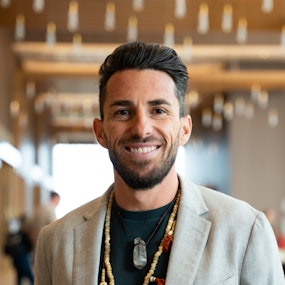
David Arraya
Hospitality Executive / Coach / Mentor / Author / Keynote Speaker
Welcome to my world of transformative experiences, conscious leadership insights, and the art of conscious hospitality.
I’m David, a seasoned hospitality executive, a passionate coach, keynote speaker, mentor, and author dedicated to sharing the invaluable lessons I’ve gathered over two decades of globetrotting and leading teams.
My journey has been a remarkable odyssey, guiding me through some of the world’s most iconic cities and colorful destinations, including New York City, Miami (twice), Hong Kong, Hawaii, Aspen, Riviera Maya, and the enchanting shores of Ibiza. Throughout this adventure, I’ve had the privilege of working with esteemed hospitality giants such as Taj Hotels, Fontainebleau, Swire Hotels, Four Seasons, Auberge Resorts, Six Senses, and Nômade People.
My mission is to inspire human beings to command their focus and attention in order to become more conscious, impactful leaders for their societies and communities. I work to help people dream bigger and to recognize that their potential is unlimited.
My passion and expertise lie in creating authentic, transformative experiences with the objective of deep bonding and community building.
With a diverse background and multilingual communication skills, I effortlessly adapt to different cultures, fostering deep connections wherever I go. My track record includes opening and revitalizing 5-star properties and luxury lifestyle brands, managing owner relationships, and implementing sound financial strategies.
Specializing in:
✨ Conscious Leadership & E…
Read More
Most Popular Episodes
Check these out:










